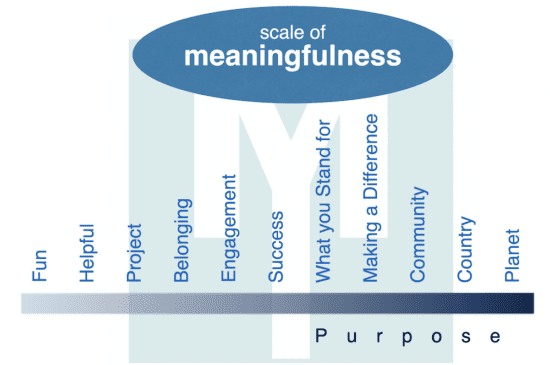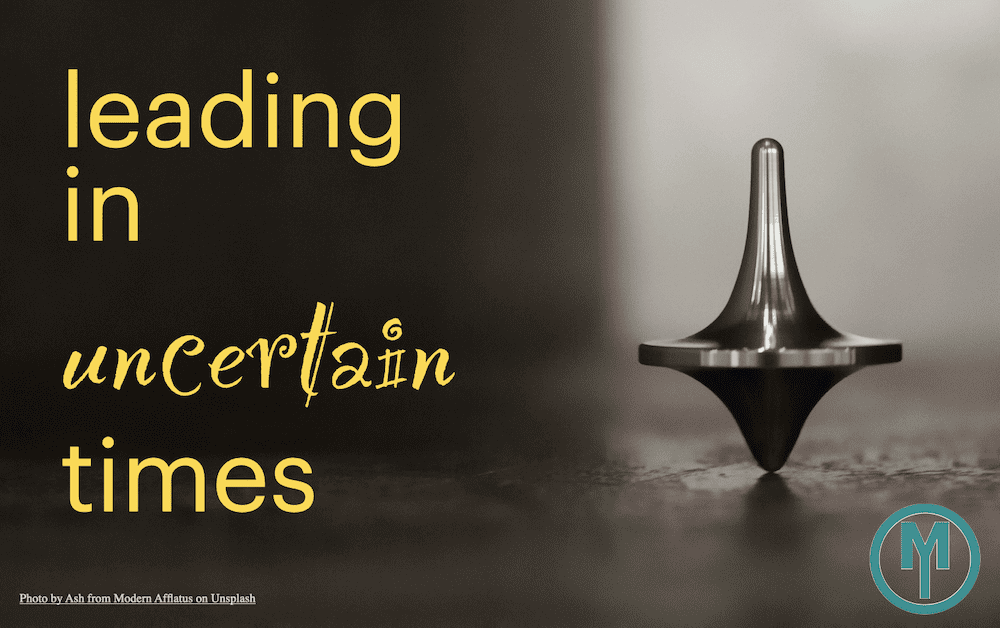I recall very well the circumstances that followed at the office in the wake of the 9/11 terrorist attacks in New York, where I was running Redken worldwide (for L’Oréal). The way certain leaders acted left an indelible mark on me — and they were mostly not positive marks. One boss mandated that we keep a scheduled meeting — with the doors left open — to demonstrate to passersby that the show (literally) must go on. He was dead set on sticking to the script, all the while mocking his wife over the loud speaker for some mundane domestic issues. Two days later, I received a call from the Big Boss who mandated that I come to Paris for the annual convention (even more literally, a dog and pony show), to show all the senior leaders why they should invest in selling more Redken shampoos and hair colour in their countries. At no point did he ask how I was, what was the ambiance in the office, how many friends I’d lost, or anything remotely outside of the matter of business. On the other hand, I also recall how my good friend and mentor, Pat, led with serenity and compassion, all the while being pragmatic.
Dealing with Uncertainty
In times of uncertainty — that characterise the state of play pretty much everywhere these days — effective and thoughtful leadership is more crucial than ever. In such times, it’s easy to be caught up in a negative spiral, in the doubt to let fear dictate, and without a compass, get overwhelmed with analysis paralysis and slow-as-molasses decision-making. As the uncertainty is prolonged, being rudderless will create tremendous inefficiencies, and will typically sap energies to the point of suffering widespread burnout. At the top level, a leader must lead the way and take ultimate responsibility (that’s why they get paid the bigger buck). This requires modeling the behaviors desired, knowing how to take courageous decisions, and keeping as many people on board as possible. That’s a fine line to tread. Specifically, being courageous will often mean making unpopular or unorthodox calls. It can also mean admitting you were wrong and shifting gears. Being brave, in this sense, requires knowing how to be vulnerable without capitulating or losing confidence.
Herewith are five key mindsets that can help navigate through the chaos and inspire others to follow suit.
1/ Craft a Meaningful Purpose
Having a clear and meaningful purpose is forceful. It serves as a guiding star, providing direction and motivation when the path ahead is unclear. Having such a purpose — or North Star setting — will help discriminate between nice-to-have’s versus need-to-have’s. Such a purpose can, therefore, help to guide more courageous decisions. It’s important to note that not all purposes are equal. Purpose exists on a scale. Some stated purposes are more powerful than others; and that relates to relevance and meaningfulness. At its core, a specific company purpose is good when it makes sense.

Yet, if your purpose is not genuine or extravagantly exaggerated, it will only serve to raise eyebrows and drive greater entropy into the organisation. When you ensure that your intentions and actions are aligned with a deeper mission — whether it’s improving lives, helping your community, or contributing to a greater cause — that sense of meaningfulness will pay dividends in the form of giving back energy. Having developed my own North Star setting has defined my own personal sense of purpose that not only keeps me grounded, but it is also a motor for me, especially when things don’t go as planned.
2/ Prioritise People
In uncertain times, it’s easy to get caught up in processes, business metrics and operational challenges. It’s often where managers like to focus because it feels safer. However, prioritizing people—employees, customers, and stakeholders—should always come first, even though it’s messier. As a leader, it’s important to make the time and have the presence of mind to listen actively, show empathy, and address concerns promptly. I like to recall the saying of Arnie Miller, the founder of Matrix, who said that it was most important to move the people that move the products. The more courageous leader will explore helping each employee to find a fit between the employee’s personal purpose and that of the organisation. By fostering a supportive environment, you can help your team feel valued and secure, which in turn boosts morale and productivity.
3/ Embrace Flexibility
Flexibility is a crucial mindset for navigating uncertainty. Unexpected situations and challenges will inevitably arise. In changing times, it’s useful to stay open to new ideas and to be able to adapt quickly to shifting circumstances. Having an open door and keeping tabs with team members, especially those in touch with the customer, is key. Embracing flexibility means avoiding dogma. But, it’s absolutely critical to keep an eye on the North Star setting of the organisation. Otherwise, it can become change for change’s sake. Just as you should keep your door open, it’s also important to know that you need to close the door at times (to think/write strategically and, metaphorically, to take the big bold decisions). Being flexible about your values will create an unsteady platform for your ongoing concern. You need to keep a solid backbone and keep faith in your and your team’s abilities. And, taking into account the place of the ego and the risk to reputation, your flexibility can include changing tack and, even, admitting mistakes.
4/ Cultivate Trust
Trust is the foundation of effective leadership. Building and maintaining trust requires a certain transparency, consistency, and integrity. It also means knowing how to be vulnerable at times, and to communicate quickly, openly and honestly, even when the news isn’t good. By being reliable and keeping your promises, you foster a culture of trust that encourages collaboration and mutual respect. Reality check (and you’ll need to honest with yourself): how often do you say what you do and do what you say? A good leader will also be the steward of the team’s time and energies.
5/ Maintain Perspective
Keeping a balanced perspective is vital. It’s easy to get overwhelmed by the immediate challenges, so you must remember to regularly step back and look at the bigger picture. Having a solid North Star setting and being able to refer back it is a great way to keep an eye on what’s important. Reflecting on past experiences and drawing lessons from them can help you channel your inner calmness and allow for more informed decisions. Providing perspective will help reassure the team that we can weather the storm together. And if you are feeling uncertain yourself, it can be invaluable to call upon a mentor. Another mentor of mine, Sam Villa, always reminded me that “change is for sure, growth is the option.” If you don’t have a mentor, I’d highly encourage you to find one. And if you don’t want a mentor, I would ask you why not?
By focusing on meaningful purpose, prioritising people, embracing flexibility, cultivating trust, and maintaining perspective, you can lead effectively through uncertain times. These mindsets not only help navigate the present challenges but also lay the foundation for a resilient and thriving future.
—-
DISCLAIMER: To begin this article, I used a new AI system, flowsend.ai, in order to transcribe and provide a synopsis for a speech I made on the same subject. The final article I own and for which take full responsibility.











